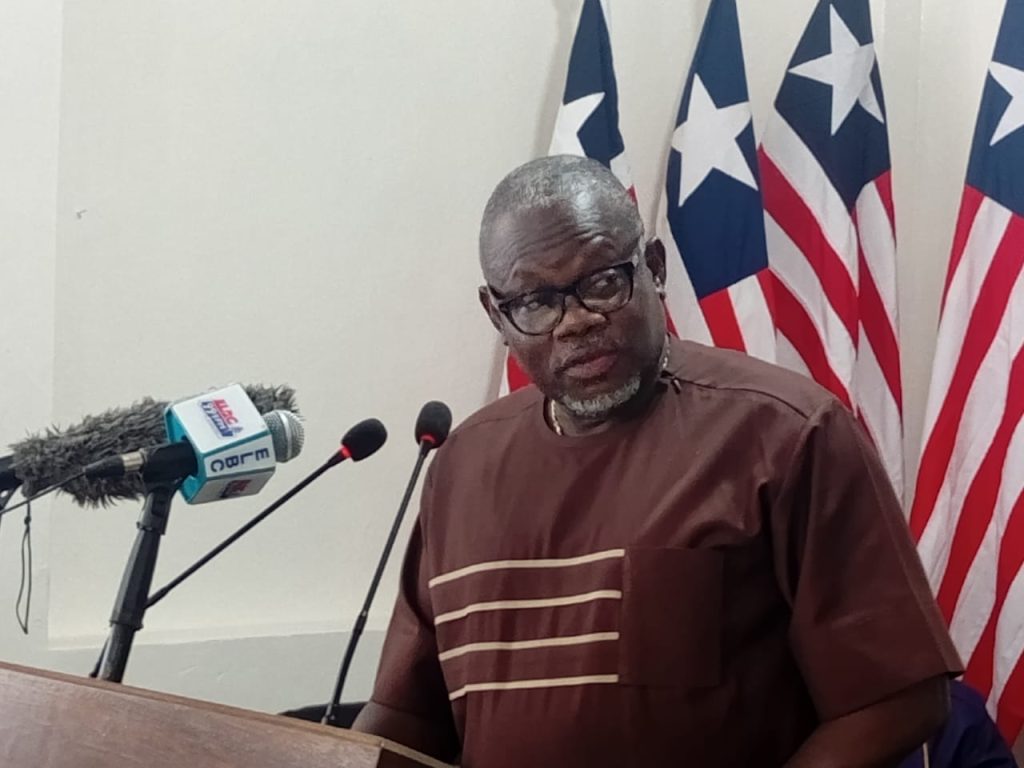The Liberia Broadcasting System (LBS), a state-owned media entity, announced a suspension of its live coverage of the Ministry of Information, Cultural Affairs, and Tourism’s (MICAT) regular press briefings, citing financial constraints and a lack of funding as the primary reasons for this decision. This abrupt move sparked immediate controversy within the Liberian government, raising questions about inter-agency communication and the role of LBS within the government’s communication framework. LBS Director General Eugene Fahngon, who spearheaded the suspension, suggested a potential for negotiation with MICAT, leaving a sliver of hope for a resolution. However, the unilateral nature of the decision drew sharp criticism from within the Ministry.
Deputy Information Minister Daniel Sanoe publicly expressed his disapproval, characterizing Fahngon’s action as a surprise move, taken without consultation with the LBS Board or the broader Liberian government. Sanoe underscored the integral role of LBS within the government’s communication structure, emphasizing the connection between MICAT and LBS, particularly given that the Information Minister also chairs the LBS Board. This dual role highlights the inherent conflict of interest created by the unilateral decision, further underscoring the need for internal communication and collaboration before such drastic measures are implemented. Sanoe’s criticism reflects a broader concern about the perceived disregard for established protocols within the government.
In response to the escalating situation, Information Minister Jerolinmek Matthew Piah instructed Deputy Minister Sanoe to formally notify President Joseph Boakai about the LBS decision. This escalation underscores the seriousness of the matter and the government’s commitment to addressing the underlying issues that led to the suspension. The involvement of the President signifies the importance of maintaining open communication channels with the public and ensuring the smooth operation of government institutions, particularly those tasked with disseminating vital information. The decision to involve the President also suggests a potential breakdown in communication between MICAT and LBS, necessitating a higher authority to mediate and resolve the conflict.
While acknowledging the financial challenges faced by LBS, Sanoe reiterated the importance of MICAT’s role in communicating with the Liberian public. He positioned MICAT as the primary source of government information dissemination, implying that circumventing the Ministry’s press briefings could hinder the flow of information to the citizens. This perspective reinforces the government’s commitment to transparency and accountability, emphasizing the need for consistent and reliable communication channels between the government and the public. Sanoe’s statements also subtly suggest that the LBS decision could potentially undermine these efforts.
Despite the ongoing tension, Sanoe expressed confidence in a swift resolution, anticipating the President’s intervention and the return of the LBS Board chairperson to the country. He emphasized the importance of dialogue and collaboration within the government, framing Fahngon’s action as a potential misstep that requires internal correction rather than a deliberate act of defiance. This approach reflects a desire to resolve the issue amicably and maintain a unified front within the government, minimizing any potential for public perception of internal discord. Sanoe’s assurance of a resolution reinforces the government’s commitment to resolving internal conflicts through established channels and maintaining a functional communication infrastructure.
The LBS decision to suspend coverage of MICAT press briefings reveals a deeper issue within the Liberian government – the need for effective inter-agency communication and adherence to established protocols. While financial constraints are a legitimate concern, the unilateral nature of the decision and the lack of prior consultation highlight a potential breakdown in communication between government entities. The involvement of the President underscores the seriousness of the situation and the government’s commitment to addressing the underlying issues. The incident serves as a reminder of the importance of open dialogue, collaboration, and adherence to established procedures within government structures, particularly those responsible for disseminating information to the public. The ultimate resolution of this situation will likely set a precedent for future inter-agency communication and decision-making processes within the Liberian government.


